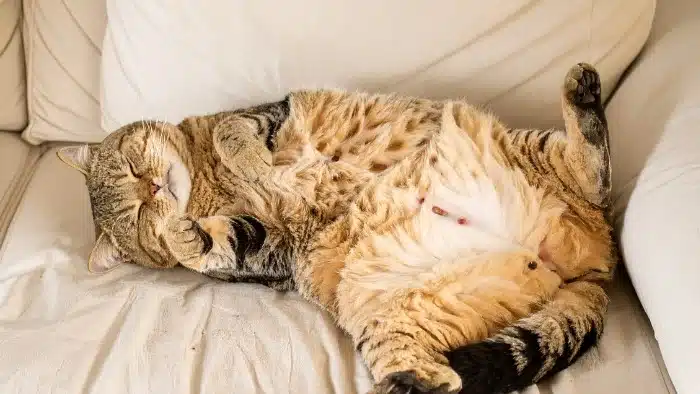Does Your Cat Sleep 16 Hours a Day?

Ever feel like your cat is always sleeping? You leave for work, it’s sleeping. You come home, he still sleeping!
But don’t worry, your cat isn’t lazy. Long hours of rest are part of the body’s natural instinct and rhythm.
Why Cats Sleep So Much
Cats are crepuscular animals, meaning they’re most active at dawn and dusk.
In the wild, cats’ ancestors hunted during these hours when prey like mice and birds were active but light was low. To save energy for hunting, cats slept most of the day and night.
Even today, house cats typically sleep 12–16 hours daily, with kittens and seniors sometimes needing up to 18 hours.
Cats also have a high metabolism, so they burn energy fast and need longer rest to recover. Playing for 10 minutes can feel like a 30-minute jog for a human — no wonder they nap afterwards!
“Light Sleep” vs “Deep Sleep”
Cats don’t sleep deeply all the time. Around 70–80% of their rest is light sleep, and only 20–30% is deep sleep.
During light sleep, a cat appears relaxed yet remains alert. Its ears twitch at sounds, its eyes may stay half open, and it can wake up in seconds.
This is a natural survival instinct — staying safe even while resting.
During deep sleep, the body fully relaxes, breathing slows, and muscles may twitch as they dream.
Deep sleep helps cats recover energy and is especially important for kittens’ growth and seniors’ health.
How the Environment Affects Sleep
Cats sleep differently depending on how safe they feel. In a safe place like your bed, they enjoy more deep sleep. In a new or noisy place, they stay alert and cautious, it’s mostly light sleep. After playtime, they fall into deeper sleep to recharge. If your cat likes to sleep near you, that’s a sign of trust, you’re part of its safe zone.
When to Worry
Sleeping a lot is normal for cats, but too much sleep can be a sign of illness.
Watch out if your cat suddenly sleeps longer than usual, seems tired even when awake, is hard to wake up, has trouble breathing, or shows other symptoms like vomiting, loss of appetite, or weight loss.
If you notice any of these signs, take your cat to the vet.
Be especially careful with kittens and senior cats, as their health can change quickly.
In short:
Your cat isn’t lazy, it’s just following nature’s rhythm.
Understanding its “real sleep” and “light sleep” helps you care for it better and keep it healthy.
